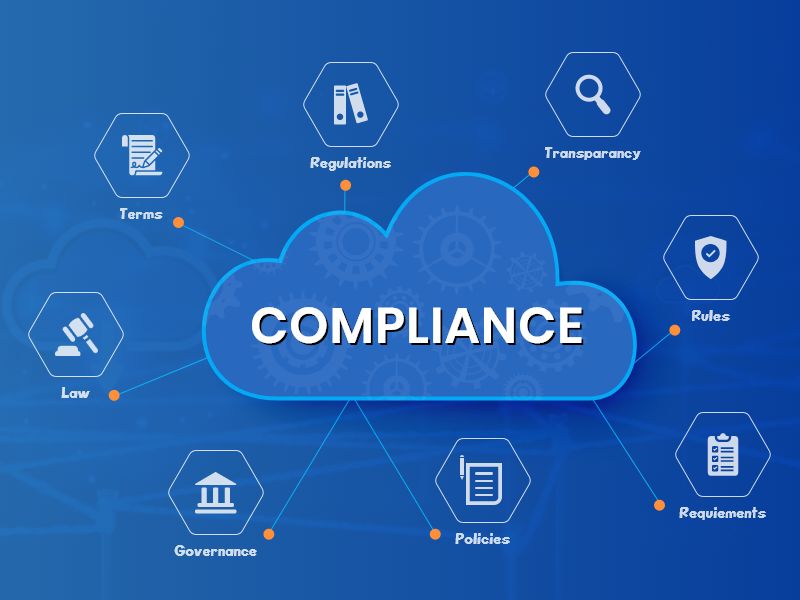Cloud compliance refers to the process of ensuring that cloud-based systems and data meet legal, regulatory, and industry standards. It’s essential for businesses handling sensitive data—like personal information, financial records, or health data.
Common compliance standards include:
-
GDPR (General Data Protection Regulation) for data privacy in the EU
-
HIPAA for healthcare data in the U.S.
-
ISO 27001 for information security management
-
SOC 2 for service organization controls
-
PCI DSS for handling credit card information
Cloud providers like AWS, Azure, and Google Cloud offer compliance-ready infrastructure, but it’s a shared responsibility. Providers manage the physical and infrastructure security, while businesses are responsible for data protection, access control, and proper configurations.
Key cloud compliance practices include:
-
Data encryption (at rest and in transit)
-
Access control and identity management
-
Audit trails and logging
-
Regular risk assessments
Non-compliance can lead to legal penalties, data breaches, and loss of customer trust.
Cloud compliance is not just a checklist—it’s an ongoing commitment. Staying compliant ensures your cloud environment is secure, trustworthy, and aligned with industry expectations.

Leave a Reply